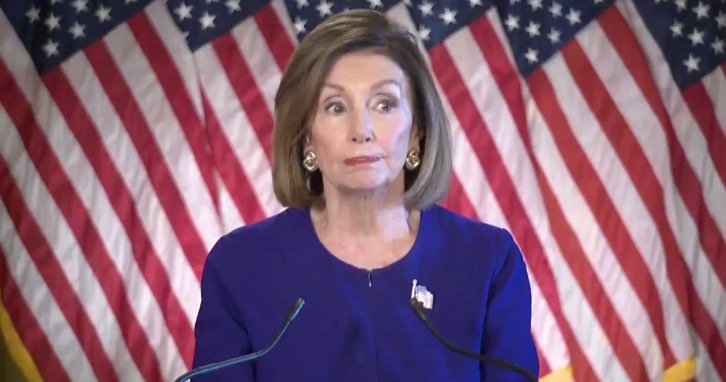On Sep. 25 (Singapore time), U.S. Speaker Nancy Pelosi announced that she is launching a formal impeachment inquiry into President Donald Trump.
Pelosi said, according to CNN, "The President must be held accountable. No one is above the law."
The times have found us. The actions taken to date by the President have seriously violated the Constitution. It is for this reason that the House of Representatives is moving forward with an official impeachment inquiry. pic.twitter.com/cHq7zgKJ1g
— Nancy Pelosi (@SpeakerPelosi) September 24, 2019
She added that "the actions of the Trump presidency revealed...the president's betrayal of his oath of office, betrayal of our national security and betrayal of the integrity of our election".
The Washington Post reported that Pelosi personally informed Trump of her decision.
Why an inquiry?
The inquiry is the first step in the impeachment process.
It will look into allegations that Trump withheld U.S. military aid from Ukraine for his personal political aims.
According to the Washington Post, Trump ordered that nearly US$400 million in military aid be withheld from Ukraine.
About a week later, on July 25, Trump called Ukraine President Volodymyr Zelensky.
During the call, Trump allegedly asked Zelensky multiple times to investigate Hunter Biden and his father for corruption.
Biden is the son of former U.S. Vice-President Joe Biden. The senior Biden is a leading Democratic party candidate for the 2020 Presidential election.
Implications of the call
According to several U.S. politicians, this raises the question about Trump's motivation to withhold the aid from Ukraine.
According to the Washington Post, Trump's actions fuelled suspicions that he sought to leverage the military aid, which was approved by Congress, into putting pressure on Ukraine to interfering in the 2020 Presidential election.
Whistleblower complaint
According to CNN, a whistleblower filed a complaint regarding the call between Trump and Zelensky, among others, on Aug. 12.
The Office of the Director of National Intelligence was supposed to send the complaint to Congress by Sep. 2. However, the deadline passed and the complaint was not sent.
On Sep. 12, House Intelligence Chairman Rep. Adam Schiff demanded that acting Director of National Intelligence Joseph Maguire turn over the complaint.
However, Maguire refused to comply, or testify before Congress.
On Sep. 25 (Singapore time), the U.S. Senate passed a unanimous resolution to call on the Trump Administration to release the complaint to the House and Senate intelligence committees.
Trump's response
Trump responded by tweeting that the inquiry was a "total witch hunt".
They never even saw the transcript of the call. A total Witch Hunt!
— Donald J. Trump (@realDonaldTrump) September 24, 2019
He also claimed that he blocked the aid to Ukraine because he wanted other countries to also "put up money".
President Trump says he blocked money to Ukraine a week before call with Ukrainian leader because he "wanted other countries to put up money." https://t.co/LOlwhKc8Ve pic.twitter.com/3k0wqrtAz0
— CBS News (@CBSNews) September 24, 2019
CNBC also reported that Trump will authorise the release of the "complete, fully declassified and unredacted" transcript of one phone call with Zelensky.
Significance of Impeachment proceedings
Trump is the fourth US president in history to face impeachment proceedings.
The impeachment inquiry is the first since the House of Representatives impeached Bill Clinton in 1998.
Two presidents in US history have been impeached (Andrew Johnson and Clinton). One resigned under threat of impeachment (Richard Nixon).
None was removed from office.
What's next?
Based on the findings of the various House committees, the judiciary committee may draft articles of impeachment against Trump.
This will then be voted on in the House. If the articles are passed, the Senate will then hold a trial.
A two-thirds majority in the Senate is required to convict and remove the President.
However, given that the Senate is currently majority-Republican (Trump's party), a conviction is not guaranteed.
Top image from Nancy Pelosi's Twitter page.
If you like what you read, follow us on Facebook, Instagram, Twitter and Telegram to get the latest updates.
